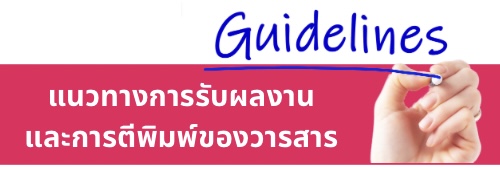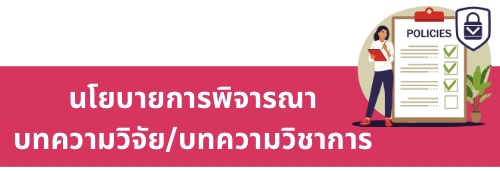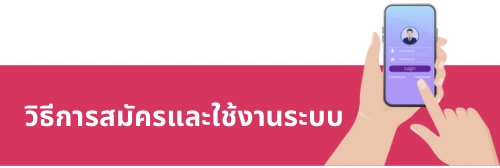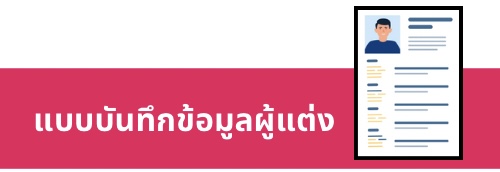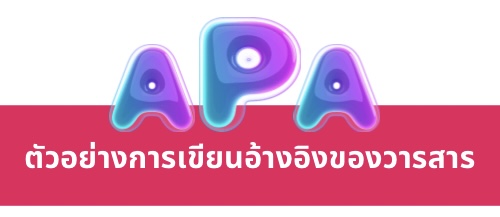The ผลของโปรแกรมการส่งเสริมพฤติกรรมสุขภาพโดยการมีส่วนร่วมของครอบครัวต่อความรู้ พฤติกรรมสุขภาพ และความดันโลหิตของผู้ป่วยโรคความดันโลหิตสูง ตำบลนาฝาย อำเภอเมือง จังหวัดชัยภูมิ
คำสำคัญ:
ความรู้, พฤติกรรมสุขภาพ, การมีส่วนร่วมของครอบครัว, ผู้ป่วยโรคความดันโลหิตสูงบทคัดย่อ
การวิจัยนี้เป็นการวิจัยกึ่งทดลองแบบสองกลุ่มวัดก่อน-หลังการทดลอง มีวัตถุประสงค์เพื่อเปรียบเทียบความรู้ พฤติกรรมสุขภาพและค่าความดันโลหิตของผู้ป่วยโรคความดันโลหิตสูง ตัวอย่าง คือ ผู้ป่วยโรคความดันโลหิตสูง อายุ 60 - 75 ปี ตำบลนาฝาย อำเภอเมือง จังหวัดชัยภูมิ จำนวน 60 คน เครื่องมือที่ใช้ในการทดลอง คือ โปรแกรมการส่งเสริมพฤติกรรมสุขภาพโดยการมีส่วนร่วมของครอบครัว เครื่องมือที่ใช้ในการเก็บรวบรวมข้อมูล คือ แบบสอบถามข้อมูลส่วนบุคคลและด้านสุขภาพ แบบวัดความรู้เกี่ยวกับโรคความดันโลหิตสูง และแบบสอบถามพฤติกรรมสุขภาพ ซึ่งได้ผ่านการตรวจสอบความตรงตามเนื้อหาและมีค่าความเชื่อมั่น โดยแบบทดสอบความรู้เกี่ยวกับโรคความดันโลหิตสูงมีค่า KR-20 เท่ากับ .82 และแบบสอบถามพฤติกรรมสุขภาพมีค่าสัมประสิทธิ์แอลฟาของครอนบาค เท่ากับ .84 วิเคราะห์ข้อมูลด้วยความถี่ ร้อยละ ค่าเฉลี่ย ส่วนเบี่ยงเบนมาตรฐาน การทดสอบไคสแควร์
การทดสอบที Repeated measures ANOVA และวิเคราะห์ความแตกต่างรายคู่ด้วยวิธี Scheffe
ผลการวิจัยพบว่า 1) กลุ่มทดลองมีความรู้และพฤติกรรมสุขภาพสูงกว่ากลุ่มควบคุมและมีการเปลี่ยนแปลงของความรู้และพฤติกรรมสุขภาพ ภายหลังการทดลอง 12 สัปดาห์ และ 24 สัปดาห์ ดีกว่าก่อนการทดลอง อย่างมีนัยสำคัญทางสถิติที่ระดับ .05 2) กลุ่มทดลองมีค่าเฉลี่ยความดันโลหิตซิสโตลิคและไดแอสโตลิค ลดลงกว่ากลุ่มควบคุม และมีการเปลี่ยนแปลงของความดันโลหิตซิสโตลิคและไดแอสโตลิค ภายหลังการทดลอง 12 สัปดาห์ และ 24 สัปดาห์ ดีกว่าก่อนการทดลอง อย่างมีนัยสำคัญทางสถิติที่ระดับ .05
Downloads
เอกสารอ้างอิง
Benjamin, S., & Bloom, B. S. (1976). Human characteristics and school learning. New York, NY: McGraw-Hill Book Company.
Best, J. W. (1981). Research in education. New Jersey, NJ: Prentice–Hall.
Chaiyaphum Hospital. (2021). Statistics of patients with hypertension. Chaiyaphum: Medical records of patients, Chaiyaphum Hospital.
Cohen, J. (1977). Statistical power analysis for the behavioral sciences. New York, NY: Academic Press.
Gamage, D. G., Riddell, M. A., Joshi, R., Thankappan, K. R., Chow, C. K., & Oldenburg, B. (2020). Effectiveness of a scalable group-based education and monitoring program, delivered by health workers, to improve control of hypertension in rural India: A cluster randomized controlled trial. PLOS Medicine, 17(1), e1002997.
Khanal, M. K., Bhandari, P., Dhungana, R. R., Bhandari, P., Rawal, L. B., Gurung, Y., . . . Courten, B. D. (2021). Effectiveness of community-based health education and home support program to reduce blood pressure among patients with uncontrolled hypertension in Nepal: A cluster-randomized trial. PloS one, 16(10), e0258406.
Kleebpratoom, P., Suthiphongkiart, B., Sumthong, P., & Oadpakdee, W. (2018). Effects of health promotion program for blood pressure control among hypertension patients at Internal medicine clinic, Angthong hospital, Angthong province. Journal of the department of medical services, 43(5), 60-66.
Kongpetch, C. (2019). Exercise for the elderly. Thai Journal of Nursing, 68(4), 64-71.
Kummak, S. (2018). Self-care behaviors among hypertension patients in Tambon Nanglao Health Promoting Hospital, Amphur Satingpha, Songkhla province. The Southern College Network Journal of Nursing and Public Health, 3(3), 153-169.
Laochai, W., Pipatsombat, P., & Jiraprapapong, N. (2021). Effects of self-management program on health behaviors among buddhist monks with hypertension disease. Journal of the police nurse, 13(2), 326-335.
Liu, L., Qian, X., Chen, Z., & He, T. (2020). Health literacy and its effect on chronic disease prevention: Evidence from China’s data. BMC Public Health, 20(1), 690.
Lorig, K. R., & Holman, H. (2003). Self-management education: History, definition, outcomes, and mechanism. Society of Behavior Medicine, 26(1), 1-7.
Na Fai Health Promoting Hospital. (2021). Statistics of patients with hypertension. Chaiyaphum: Registration and statistics.
Noradechanunt, C., Worsley, A., & Groeller, H. (2017). Thai yoga improves physical function and well-being in older adults: A randomized controlled trial. Journal of science and medicine in sport, 20(5), 494-501.
Ozoemena, E. L., Iweama, C. N., Agbaje, O. S., Umoke, P. C. I., Ene, O. C., & Ofili, P. C. (2019). Effects of a health education intervention on hypertension -related knowledge, prevention and self-care practices in Nigerian retirees: A quasi-experimental study. Archives of Public Health, 77(1), 23.
Park, J., Noh, O., & Jung, S. (2019). Coping with symptoms after education for self-management of chronic diseases. International Journal of Advanced Culture Technology, 7(1), 89-95.
Polit, D. F., & Hungler, B. P. (1995). Nursing research: Principle and methods (4th ed.). Philadelphia, PA: J. B. Lippincott.
Poolsawat, B., Benjakul, S., Kengganpanich, M., & Kengganpanich, T. (2021). The effects of a program to reduce sugar consumption by applying the self-efficacy theory with social support in overweight women. Journal of The Police nurses, 13(2), 277-289.
Sanlah, N. (2022). The effect of a self-management program on blood pressure control behavior of hypertensive patients. Journal of Nursing and Public Health Research, 1(1), 27-39.
Schepp, K. (1995). Psychometric assessment of the preferred participation scale for parent of hospitalized children. Unpublished manuscript University of Washington, School of Nursing, Seattle, WA.
Shen, Y., Wang, T. T., Gao, M., Hu, K., Zhu, X. R., & Zhang, X. (2020). Effectiveness evaluation of health belief model-based health education intervention for patients with hypertension in community settings. Chinese journal of preventive medicine, 54(2), 155–159.
Stergiou, G. S., Palatini, P., Modesti, P. A., Asayama, K., Asmar, R., Bilo, G., . . . Parati, G. (2020). Seasonal variation in blood pressure: Evidence, consensus and recommendations for clinical practice: Consensus statement by the European society of hypertension working group on blood pressure monitoring and cardiovascular variability. Journal of hypertension, 38(7), 1235-1243.
Strategy and Planning Division Office of Permanent Secretary. (2021). Hypertension disease report in Thailand. Fiscal year 2021.
Suaetoo, N., Jirapongsuwan, A., Rawiworrakul, T., & Tipayamongkholgul, M. (2018). The effect of a program to promote blood pressure control among 35 to 59-years-old patients with uncontrolled hypertension. Journal of Public Health Nursing, 32(2), 95-115.
Tam, H. L., Wong, E. M. L., & Cheung, K. (2020). Effectiveness of educational interventions on adherence to life style modifications among hypertensive patients: An integrative review. International Journal of Environmental Research and Public Health, 17(7), 2513.
The International Society of Hypertension (ISH). (2020). Background information on high blood pressure (hypertension). Retrieved from http://ish-world.com/public/backgroundinfo.html
World Health Organization. (2021). Prevention of cardiovascular diseases: Pocket guidelines for assessment and management of cardiovascular risk. Geneva: World Health Organization.
Wutthitham, N., Chontong, R., & Sompradit, C. (2019). The effects of self-efficacy enhancement on blood pressure level controlled among hypertension risk group. Journal of The Royal Thai Army Nurses, 21(1), 309-318.

ดาวน์โหลด
เผยแพร่แล้ว
รูปแบบการอ้างอิง
ฉบับ
ประเภทบทความ
สัญญาอนุญาต
ลิขสิทธิ์ (c) 2022 วารสารพยาบาลตำรวจ

อนุญาตภายใต้เงื่อนไข Creative Commons Attribution-NonCommercial-NoDerivatives 4.0 International License.
ผลงานที่ได้ตีพิมพ์แล้วจะเป็นลิขสิทธิ์ของวารสารพยาบาลตำรวจ

